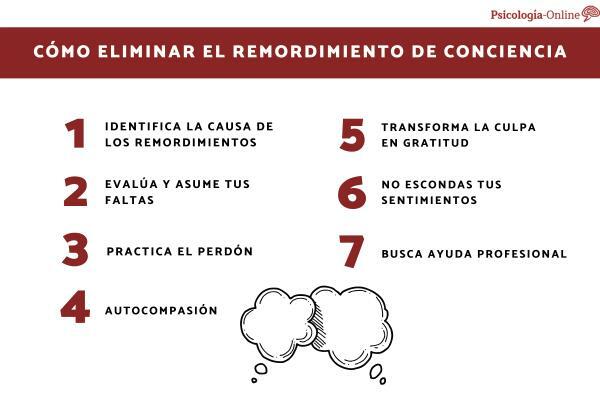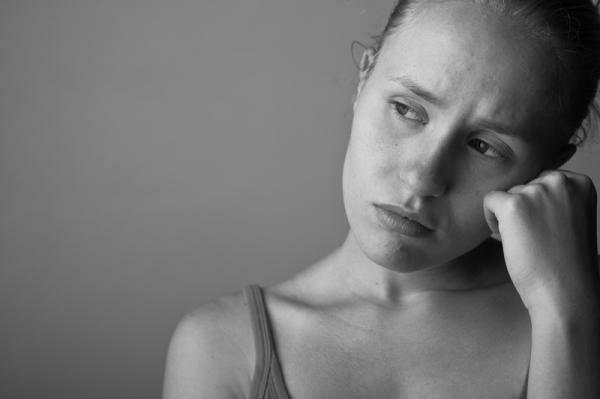The truth is that, if you have the thought "I have no desire to live", you probably present a depressed mood. So, do I have depression? It doesn't have to, there are many degrees when it comes to mood. You can present from a depressed mood due to a complicated situation in your life, you can have depressive symptoms or you can have a depressive disorder. In the latter case, it will be necessary to meet a series of criteria. Within depressive disorders there are different types of disorders with different characteristics that should be evaluated and diagnosed by mental health professionals accredited for it.
What is depression?
Depression is a mood disorder that affects both thoughts, emotions, and behavior. Depression is characterized by sadness and disinterest. However, it can present in many forms and with different symptoms.
Symptoms of depression
The main symptoms of depression are:
- Sadness
- Crying
- Hopelessness
- Empty
- Irritability
- Tiredness
- Apathy
- Abulia
- Anhedonia
- Sexual problems
- Sleeping problems
- Altered appetite
- Culpability
- Memory problems
- Concentration problems
- Psychomotor slowing
- Thoughts about death
Depression test
There are many valid and reliable instruments for detecting depression. The most widely used is the famous Beck Depression Inventory. You can make this adaptation of the Beck's depression test in online format.
If you think you may have depression or a depressive disorder, it will be necessary for you to go to a professional for an evaluation and diagnosis of your case. If you have depression, in the next section we explain how to get out of a deep depression.
If you are in a deep depression, it is normal for you to have pessimistic thoughts due to exhaustion and hopelessness. How to get out of a deep depression? If you have the thought "I have no desire to live", you should know that the human being is designed to fulfill two basic functions:
- Survival.
- The continuation of the species.
This means that our body is prepared to ensure the survival of itself and the species. Our brain is like a machine whose objective is that we adapt to the environment and survive. Therefore, it is in our nature to want to live. Knowing this, what can you do if you don't feel like living? How do you want to live? Applying the following tips:
1. Do something that makes you feel good
The first thing we should do when faced with a low mood is enhance positive emotions and well-being. The easiest and immediate way is to do it through the senses. Some ideas for this are:
- Take a shower. With cold, warm or hot water, whichever is more pleasant for you.
- Eat something you like. A pleasant taste will influence the mood. In moderation and following a healthy diet, of course.
- Wear clothes that are comfortable and pleasant to the touch.
- Give yourself a massage.
- Pleasant smells. The aromatherapy defends the influence of smells on the emotional state. Use a fragrance that you find pleasant.
- Smile and laugh. Yes, look for a funny video or monologue. You can also smile or laugh on purpose. Your facial expression influences emotional processing.
2. Do something you like
Next, it is important to apply a technique called behavioral activation, which defends that through behavior we can influence emotions and thoughts. Therefore, the first thing you can do is choose an activity that you like (go for a walk, put on a song and dance to it, cook, ...). It should be a simple activity that you like and that does not require a lot of effort. Once you have chosen the activity, do it. Without thinking. Do not give it more laps. Do it now. You may be lazy at first, but when you've done it, you'll feel better.
3. Plan activities
When you have started to activate your body, you can take a calendar, choose some activities that you feel like doing and mark them on the days that it is good for you to do them. It has the same objective as the previous point, to activate your body so that the body produces hormones, whose effects will be to increase well-being and improve mood. These effects will also influence thoughts. These activities should be simple, do not require much effort and, above all, That you like. Later, you can increase the level of difficulty and frequency of the activities.
4. Relate
Try to interact with others in a positive way. We are social beings, we live in society and we need to communicate, express ourselves and share. Although each one to a different extent. Depending on your preferences and needs, you can have more or less social contact, but you do have to take care of this area of your life. Try surround yourself with positive people, that they contribute something to your life and that their company contributes to your well-being. If you have family or friends who meet these characteristics, stay with them. Set times to meet.
5. Focus on the here and now
Focus on the present, what you have now and what you can do with it. Thinking about the past or worrying excessively about the future is counterproductive. How can you focus on the present? Practicing mindfulness. How to do it?
- Put the 5 senses in what you are doing right now.
- One thing at a time.
- When thoughts about the future or the past come, let them go and go back to what you are doing here and now.
6. Question your beliefs
After the first few points, you will have managed to reduce the discomfort and you will be able to think more clearly. Remember that emotions influence thinking and behavior and, when we are very sad or tired thoughts are conditioned for that state. Once you've gotten out of this loop, you can have more objective thoughts. So, it is time to restructure your thoughts. Detect your cognitive distortions. Do you have thoughts like "I'm not doing anything right", "I'm stupid", "everything goes wrong", "others are better than me"? Well, it's time to question these thoughts: is what you think really true? Probably not. But thinking about it has repercussions on your belief system and therefore on your behavior and your state of mind.
This point presents some complexity. Therefore, if you cannot do it alone, it is totally normal and it is recommended that you go to a professional.
7. Find the meaning of your life
Reflect on what things are important to you, what things are you passionate about doing, what do you do well, and so on. What is the meaning of your existence? What do you want to contribute to the world, to society, to your family, to your work, to your hiking team, for example? This answer is very personal. To find it, you can use the ikigai method.
8. Set goals
What things would you like to try? Do you want to learn something new? What do you want to get the next few months? Goals and objectives must be clear, specific, realistic, and achievable. Set a goal, to have will power and fulfill it, it will generate in you satisfaction and feeling of well-being. In addition to affecting your self-esteem, improving your skills and abilities, your self-concept and perception of self-efficacy.
9. Maintain healthy habits
Try to maintain a healthy lifestyle by implementing healthy habits and routines. When you are sad and discouraged, the most normal thing is that don't feel like doing anythingDo not cook, do not play sports, do not take care of yourself. But think that if you eat poorly, do not exercise, do not take care of yourself, etc., the mood is likely to get worse. In addition, you will also be more prone to suffering from some other disease.
10. Beware
During the process, take good care of yourself. How can you do it?
- Know yourself. Practice self-awareness so you can use your strengths.
- Respect yourself. Be honest with yourself and respect your decisions, your preferences, and so on.
- Be assertive. Express your opinion in a respectful way, but do express it. Above all, learn to say no.
- Be kind to yourself. Practice self-compassion, you are not perfect, nobody is. Try to judge yourself less and treat yourself well, the same way you would treat a friend.
- Thanks. Practice gratitude by thanking you for what you have, rather than complaining about what you don't. Life depends on the perspective from which you look at it.


